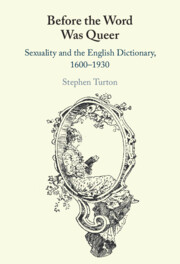
- Cited by 1
-
Cited byCrossref Citations
This Book has been cited by the following publications. This list is generated based on data provided by Crossref.
Tagarro, Pablo M. and Navarro-Carrascosa, Carles 2024. Tyler Everett Kibbey (ed.), Linguistics out of the closet: The interdisciplinarity of gender and sexuality in language science. Berlin: De Gruyter, 2023. Pp. 279. Hb. €124.95.. Language in Society, p. 1.
- Publisher:
- Cambridge University Press
- Online publication date:
- March 2024
- Print publication year:
- 2024
- Online ISBN:
- 9781009006804


